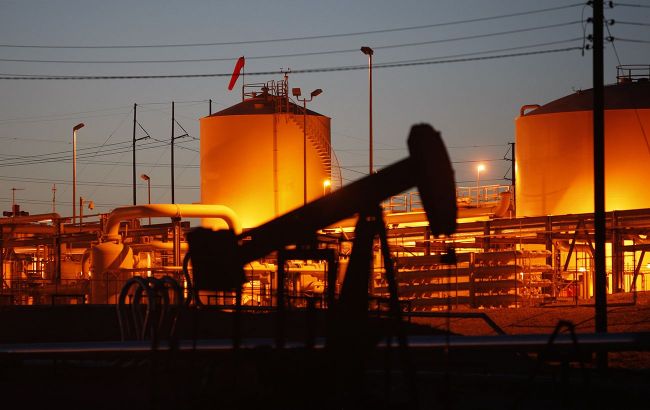Türkiye saves $2 bln on cheap Russian oil in 2023
 Photo: Türkiye continues to buy more Russian oil despite sanctions (Getty Images)
Photo: Türkiye continues to buy more Russian oil despite sanctions (Getty Images)
Türkiye and Turkish companies saved approximately $2 billion on electricity bills in 2023 due to increased imports of Russian oil and oil products at a discount. Türkiye continues to buy more, despite Western sanctions, becoming the largest importer of Russian energy resources in the Western Hemisphere, reports Reuters.
Türkiye has become the largest importer of Russian energy resources in the Western Hemisphere after Russia's invasion of Ukraine prompted European countries to cut most of their imports of Russian oil and gas. While China and India import larger volumes from Russia than Türkiye, Türkiye's proximity to Russian ports means it saves more than other buyers due to cheaper transportation.
According to Reuters calculations, in November 2023, the supply of Russian Urals crude oil to Türkiye reached a record level of 400,000 barrels per day, accounting for about 14% of Russia's total oil exports by sea last month.
It is expected that supplies to Türkiye will continue to increase in the coming months after the private Russian oil producer Lukoil signed an agreement with the Azerbaijani company SOCAR to process up to 200,000 barrels per day of its oil at the Turkish STAR refinery owned by SOCAR.
In addition to the increase in crude oil supplies, Türkiye's import of Russian diesel fuel, fuel oil, aviation fuel, and marine fuel surged by 200% in January-November 2023, reaching approximately 0.29 million barrels per day.
Russia supplied 13 million tons of distillates to Türkiye from January to November, including 8.6 million tons of low-sulfur diesel fuel.
Traders state that this year Türkiye paid $25-$150 less per ton (equivalent to $3.3-$20 per barrel) for Russian diesel fuel compared to prices for similar grades in the Mediterranean. Discounts on oil ranged from $5 to $20 per barrel. The cheaper import of energy resources helped Türkiye reduce its trade deficit and alleviate pressure on its currency, which depreciated by 30% this year.
According to LSEG, Türkiye also increased diesel fuel exports during the same period by 120% to 6.03 million tons from 2.75 million tons in January-November 2023.
Many activists and supporters of Ukraine accuse Türkiye of effectively helping Russia redirect its production to Europe, bypassing sanctions.
Discounts on Russian oil
Türkiye is not unique in benefiting significantly from purchases of Russian oil. India, which also refused to join sanctions against Moscow, increased its imports of Russian oil by 77% this year. Based on government data, it saved approximately $2.7 billion on Russian oil imports during the first nine months of 2023. However, India imported much larger volumes of Russian oil—1.7 million barrels per day—meaning that the per-barrel savings for Türkiye were much higher.
Traders say savings can be achieved on freight rates, as, according to their estimates, the current cost of delivering a tanker with Russian oil to Türkiye is $6 million compared to $9 million to India.
Analyst Victor Katona stated that Turkish refineries have become some of the most profitable in the Mediterranean since the introduction of Russian sanctions in February 2022. The largest Turkish refinery, Tupras, had a gross profit of $30 per barrel over the past year, which is $6 per barrel higher than the average profitability of a complex refinery in the Mediterranean.
Moskova and Ankara are also discussing the creation of a hub for Russian gas in Türkiye after the EU sharply reduced purchases of Russian gas. This plan aligns with Ankara's long-standing desire to become a major energy distribution center in Southern Europe. Russia sees the hub as a way to redirect its gas exports from Europe or indirectly sell some gas to the EU.
The price cap on Russian oil at $60 per barrel, introduced in December of the previous year, reduced Kremlin revenues by 14%. An analysis by the Center for Energy Research and Clean Air (CREA) shows that the price cap cost the Kremlin €34 billion in export revenues over the past year, equivalent to about two months of income.

